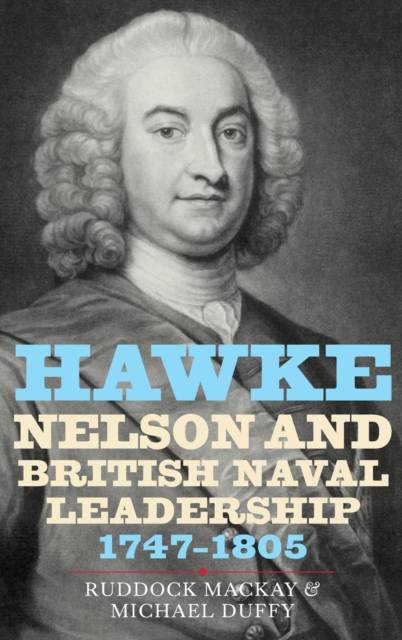
- Retrait gratuit dans votre magasin Club
- 7.000.000 titres dans notre catalogue
- Payer en toute sécurité
- Toujours un magasin près de chez vous
- Retrait gratuit dans votre magasin Club
- 7.000.0000 titres dans notre catalogue
- Payer en toute sécurité
- Toujours un magasin près de chez vous
Hawke, Nelson and British Naval Leadership, 1747-1805
Ruddock MacKay, Michael Duffy
Livre relié | Anglais
177,45 €
+ 354 points
Description
A discussion of the key leadership qualities which underpinned Britain's naval victories in the eighteenth century. Unlike other books on eighteenth-century British admirals, which tell and re-tell the history of admirals' successful exploits, this book investigates what exactly were the qualities which made for successful naval leadership in this period. It identifies twelve key qualities, and discusses how far each of the many leading admirals of the period possessed these qualities. It argues that Hawke and Nelson were the outstanding naval leaders of the eighteenthcentury, outlining their respective careers and showing how both of them possessed, more than the other admirals, the key qualities of leadership. Moreover, it argues that British fleet tactics and blockade strategy reached a newhigh level in the middle of the eighteenth century; that Hawke played the leading operational role in achieving this; and that Hawke has been undervalued both in the history of the British navy and in public estimation of Britain's great military and naval leaders. Overall, the book provides a refreshing reappraisal of British naval warfare in the eighteenth century, enabling readers to relive key battles and other encounters, and appreciate how crucial, alongside other key factors which are also discussed, the leadership qualities of the admirals were in bringing about success, or, in some cases, failure. Ruddock Mackay has published extensively on maritime history and taught at the Royal Naval College Dartmouth and the University of St Andrews. Michael Duffy, who was Director of the Centre for Maritime Historical Studies at the University of Exeter 1991-2007, has also published extensively on maritime history.
Spécifications
Parties prenantes
- Auteur(s) :
- Editeur:
Contenu
- Nombre de pages :
- 256
- Langue:
- Anglais
Caractéristiques
- EAN:
- 9781843834991
- Date de parution :
- 15-10-09
- Format:
- Livre relié
- Format numérique:
- Genaaid
- Dimensions :
- 156 mm x 234 mm
- Poids :
- 539 g

Les avis
Nous publions uniquement les avis qui respectent les conditions requises. Consultez nos conditions pour les avis.






